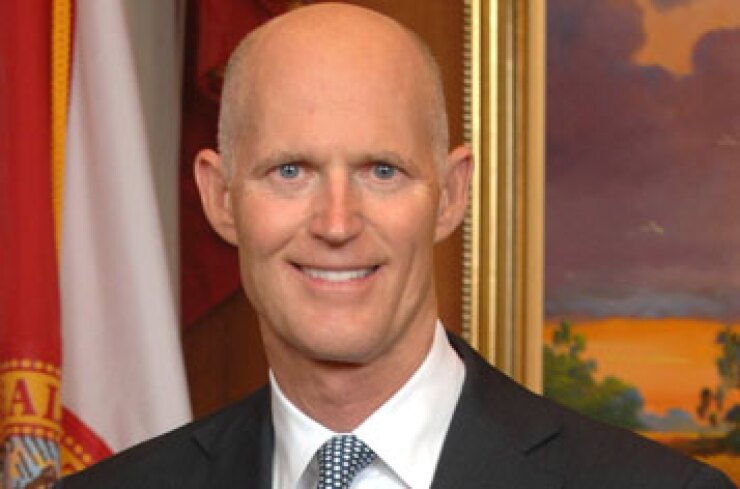
BRADENTON, Fla. – After four years of record spending, Florida's budget is headed for a structural imbalance stemming from tax cuts and rising Medicaid and education costs, according to state economists.
Over the next three fiscal years, Florida's spending and tax cuts will outstrip available revenues if corrective actions are not taken, forecasters said in a long-range financial outlook
Problems will begin in fiscal 2018 when state is projected to end the year with a surplus of only $7.5 million or 0.02% percent of general revenues, they reported to the Legislative Budget Commission.
The expected surplus in 2018 will occur by using $24.4 million in non-recurring revenue to fund recurring expenditures and revenue adjustments, the report said.
Projected large negative ending balances in 2019 and 2020 "indicate a looming problem," the report said.
"Fiscal years 2018-19 and 2019-20 both show projected budget needs significantly in excess of available revenue," the economists said. "The shortfalls are even greater when factoring in the potential revenue adjustments."
In 2019, the spending gap could be as large as $1.3 billion, depending on programs that lawmakers fund.
In 2020, when a new governor will take office, the deficit could rise to $1.8 billion.
Economists delivered the grim outlook even though the most recent revenue estimate projects that Florida will see general revenues will grow by $1.35 billion or 4.6% in fiscal 2018.
Revenues are expected to grow by 4.1% in 2019 and 4% in 2020.
The expected budget imbalance is based on estimated revenues, rising costs for priority state programs such as education and human resource programs, and tax cuts authorized by lawmakers in prior years.
Gov. Rick Scott, who has made tax relief a hallmark of his administration, is expected to recommend additional cuts next year.
Since taking office in 2011, Scott has said that he cut taxes more than 55 times totaling $5.5 billion.
No specific course of action for dealing with the upcoming budget gaps were recommended, though economists outlined ways to deal with the looming structural imbalance.
While state reserves are projected at $3.4 billion in fiscal 2016, they said those emergency funds cannot by law be tapped to close deficits in future years.
"Fiscal strategies are advisable for all three years of the outlook to manage the problems in the out-years," forecasters advised.
In March, Scott signed an $82.3 billion budget for fiscal 2017, the fourth straight year of record state spending. It included $550 million in tax relief.





